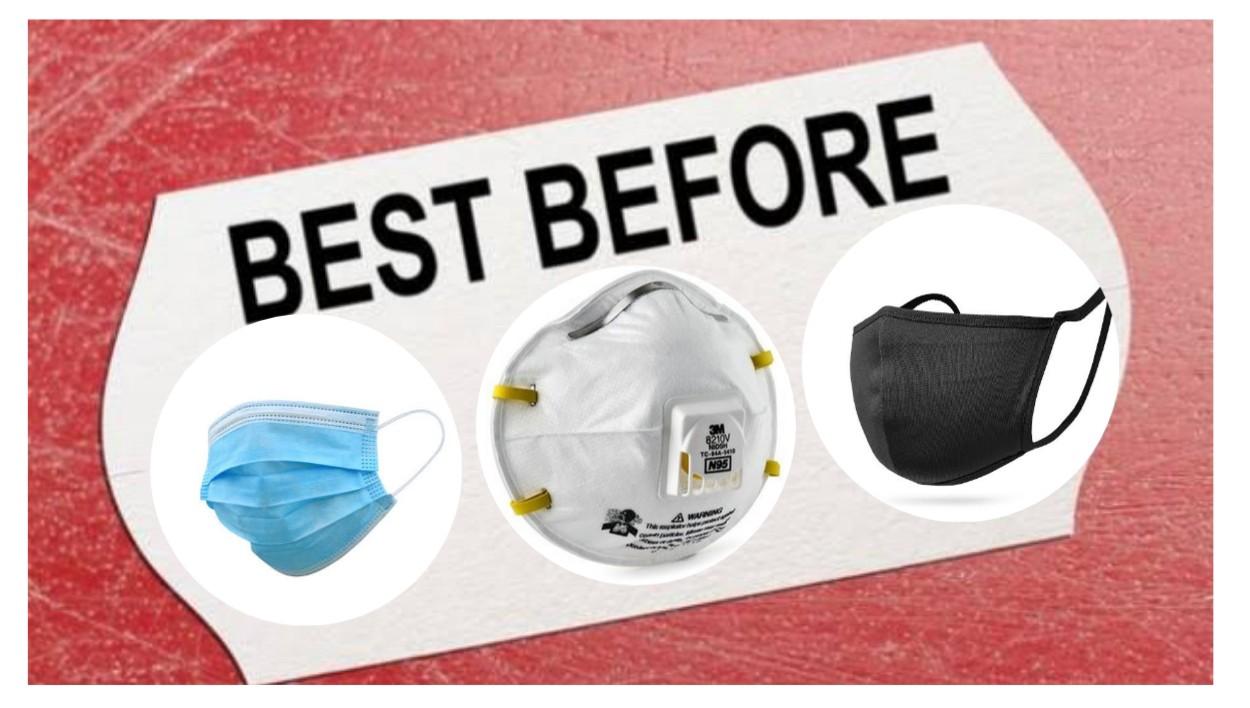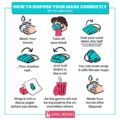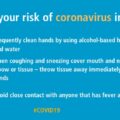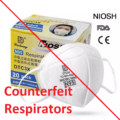According to a Cambridge University article, A face mask should be the first item of Personal Protective Equipment (PPE) that is put on and the last item that is taken off. Following the outbreak of COVID-19, the Centers for Disease Control and Prevention (CDC) has recently begun to recommend using a cloth face covering when you’re out in public. Recent studies have shown that SARS-CoV-2, the virus that causes COVID-19, can be transmitted even when a person who has it doesn’t have symptoms. If you’ve contracted the virus, this can occur when a person is presymptomatic (have the virus but haven’t developed symptoms yet) or asymptomatic(have the virus but don’t develop symptoms).
Both the Centers for Disease Control and Prevention (CDC) and the World Health Organization now recommend cloth masks for the general public, but earlier in the pandemic, both organizations recommended just the opposite. These shifting guidelines may have sowed confusion among the public about the utility of masks. But health experts say the evidence is clear that masks can help prevent the spread of COVID-19 and that the more people wearing masks, the better.
What evidence do we have that wearing a mask is effective in preventing COVID-19?
There are several strands of evidence supporting the efficacy of masks. One category of evidence comes from laboratory studies of respiratory droplets and the ability of various masks to block them. An experiment using high-speed video found that hundreds of droplets ranging from 20 to 500 micrometers were generated when saying a simple phrase, but that nearly all these droplets were blocked when the mouth was covered by a damp washcloth. Another study of people who had influenza or the common cold found that wearing a surgical mask significantly reduced the amount of these respiratory viruses emitted in droplets and aerosols.
But the strongest evidence in favor of masks come from studies of real-world scenarios. A recent study published in Health Affairs, for example, compared the COVID-19 growth rate before and after mask mandates in 15 states and the District of Columbia. It found that mask mandates led to a slowdown in daily COVID-19 growth rate, which became more apparent over time. The first five days after a mandate, the daily growth rate slowed by 0.9 percentage-points compared to the five days prior to the mandate; at three weeks, the daily growth rate had slowed by 2 percentage-points.
Another study looked at coronavirus deaths across 198 countries and found that those with cultural norms or government policies favoring mask-wearing had lower death rates.
Two compelling case reports also suggest that masks can prevent transmission in high-risk scenarios, said Chin-Hong and Rutherford. In one case, a man flew from China to Toronto and subsequently tested positive for COVID-19. He had a dry cough and wore a mask on the flight, and all 25 people closest to him on the flight tested negative for COVID-19. In another case, in late May, two hair stylists in Missouri had close contact with 140 clients while sick with COVID-19. Everyone wore a mask and none of the clients tested positive.
Do masks protect the people wearing them or the people around them?
There’s enough evidence to say that the best benefit is for people who have COVID-19 to protect them from giving COVID-19 to other people, but you’re still going to get a benefit from wearing a mask if you don’t have COVID-19. Masks may be more effective as a “source control” because they can prevent larger expelled droplets from evaporating into smaller droplets that can travel farther. Another factor to remember, noted Rutherford, is that you could still catch the virus through the membranes in your eyes, a risk that masking does not eliminate.
How many people need to wear masks to reduce community transmission?
In one simulation, researchers predicted that 80 percent of the population wearing masks would do more to reduce COVID-19 spread than a strict lockdown. The latest forecast from the Institute of Health Metrics and Evaluation suggests that 33,000 deaths could be avoided by October 1 if 95 percent of people wore masks in public. Even if you live in a community where few people wear masks, you would still reduce your own chances of catching the virus by wearing one.
Does the type of mask matter?
Studies have compared various mask materials, but for the general public, the most important consideration may be comfort. The best mask is one you can wear comfortably and consistently. N95 respirators are only necessary in medical situations such as intubation. Surgical masks are generally more protective than cloth masks, and some people find them lighter and more comfortable to wear. An N95 mask or N95 respirator is a particulate-filtering facepiece respirator that meets the U.S. National Institute for Occupational Safety and Health (NIOSH) N95 classification of air filtration, meaning that it filters at least 95% of airborne particles.
Do Face masks Expire
Depending on the active ingredients used in making it, face masks expire in about one to two years from the date of opening. The good news, however, is that a mask made with activated charcoal will not expire if it hasn’t made contact with air, so as long as you keep it closed, you’ll be good until you’re ready to use it.
Cloth based or fabric based face mask lose their ability to confer protection after several wash because the pores become wider and sometimes contaminated with detergent or soap. One of the most harmful chemicals found in laundry detergent is 1,4-Dioxane. Acute (short-term) inhalation exposure to high levels of 1,4-dioxane has caused vertigo, drowsiness, headache, anorexia and irritation of the eyes, nose, throat, and lungs in humans. It may also irritate the skin. In addition, inhaling soap products, may result in difficulty in breathing or swelling in your throat. ALSO SEE: Antiviral Face Mask: Types, How to Wear and Dispose






